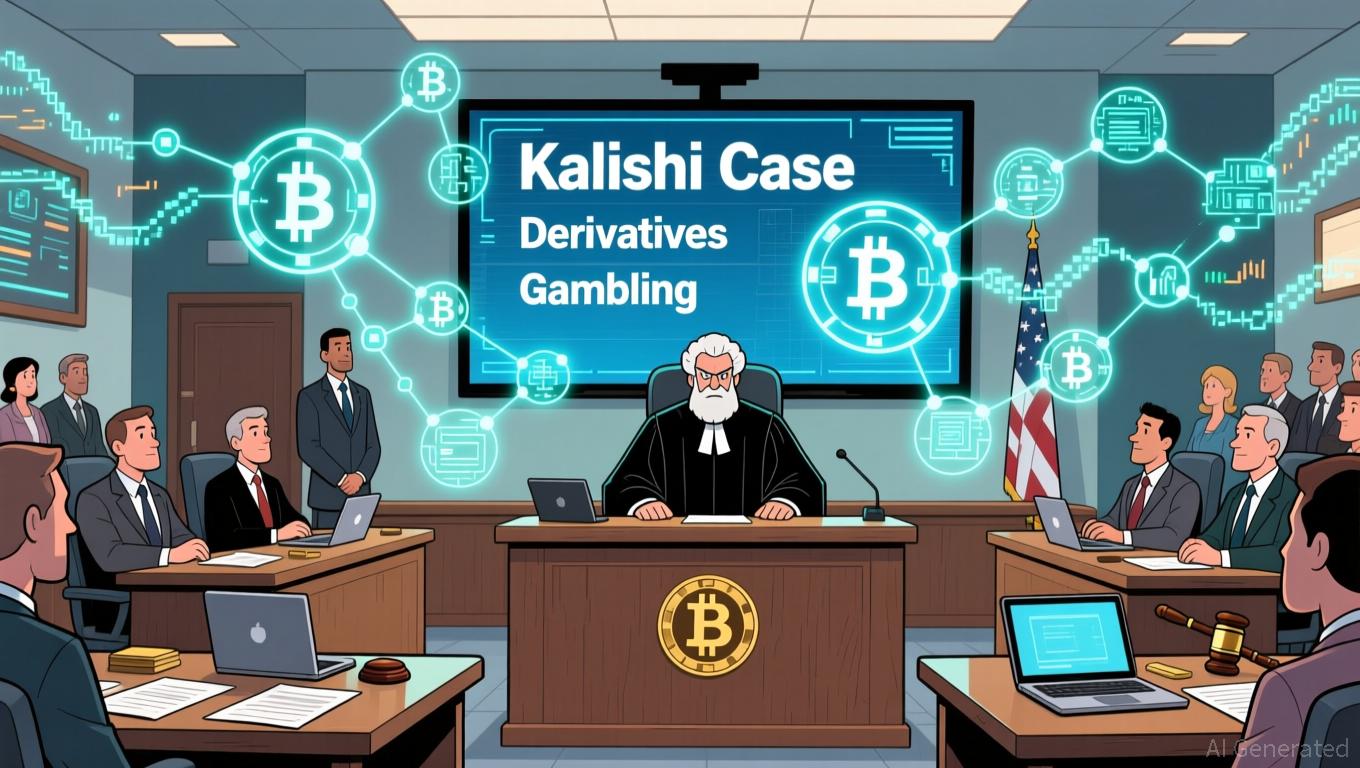BNB News Update: BlackRock's BUIDL Sparks $16 Trillion RWA Tokenization Surge as BNB Chain Grows
- BlackRock's BUIDL fund expanded to BNB Chain in late 2025, leveraging low fees and scalability to boost institutional access to tokenized U.S. Treasury yields. - The multi-chain strategy now spans eight networks, with BUIDL managing $2.9B in assets, offering 3.7%-5% yields via on-chain compliance with U.S. securities laws. - Binance approved BUIDL as off-exchange collateral, enabling yield generation without asset transfer, while BNB Chain's $40B cross-chain ecosystem supports institutional-grade solutio
BlackRock’s tokenized U.S. Treasury fund, BUIDL, has now launched on the
Managed by

Another key update with the BNB Chain launch is Binance’s approval of BUIDL as collateral outside of its exchange.
Carlos Domingo, CEO of Securitize, highlighted the significance of this move: “Bringing BUIDL to BNB Chain and enabling its use as collateral on Binance broadens its reach and practical value. We’re pushing forward with regulated real-world assets on-chain, opening up new utilities that weren’t possible before.” The partnership also underscores BNB Chain’s position as a center for institutional blockchain solutions, with
By late 2025, BlackRock’s USD Institutional Digital Liquidity Fund (BUIDL) had reached $2.9 billion in assets under management, making it the largest tokenized real-world asset (RWA) available. The fund’s multi-chain deployment—
This expansion reflects a wider trend in RWA tokenization, a market
BlackRock’s move to BNB Chain also deepens its collaboration with Binance, which has incorporated BUIDL into its institutional services.
As blockchain-based finance continues to progress, BlackRock’s BUIDL fund illustrates how traditional asset managers are turning to blockchain to boost liquidity and operational efficiency. With more institutions adopting tokenized assets, the partnership between BlackRock, Binance, and BNB Chain could pave the way for future hybrid financial models.
Disclaimer: The content of this article solely reflects the author's opinion and does not represent the platform in any capacity. This article is not intended to serve as a reference for making investment decisions.
You may also like
Blockchain Betting's Legal Challenge: Is It Considered Gambling or a Derivative?
- NBA star Tristan Thompson advocates blockchain-based sports prediction markets, aligning with DeFi's potential to transform fan engagement. - Kalshi faces legal scrutiny as a federal judge questions whether its event contracts qualify as derivatives under U.S. commodity laws. - Blockchain startups like Ideosphere and Portage Biotech explore prediction markets for scientific funding, leveraging tokenized assets and staking revenues. - Regulatory ambiguity over derivatives vs. gambling risks stifling innov

From Spectator to Participant: How Prediction Markets Are Transforming the Way Fans Interact with Sports
- NBA star Tristan Thompson predicts prediction markets will boost sports viewership by integrating real-time betting into broadcasts. - FanDuel launches a standalone app with CME Group , offering sports and economic prediction contracts while addressing regulatory and consumer protection concerns. - Polymarket partners with UFC and NHL to introduce live prediction scoreboards, transforming passive viewing into interactive trading during events. - Growing industry adoption by Google, Yahoo Finance, and pla

Federal Judge Blocks Trump’s Attempt to Pressure UC Through Funding
- A federal judge blocked Trump's plan to defund UC over antisemitism claims, citing First and Tenth Amendment violations. - The $1.2B funding demand and civil rights investigations were deemed coercive tactics to suppress "woke" academic views. - UC warned the financial threat would devastate its research programs, while critics called the strategy authoritarian. - The ruling preserves UC's funding but leaves unresolved tensions over government influence in higher education.

Ethereum News Today: Ethereum’s Unyielding Approach: Shutting the Door on Centralization
- Ethereum co-founders release "Trustless Manifesto" on blockchain to reinforce decentralization amid ecosystem centralization risks. - Document encoded in ownerless smart contract emphasizes self-custody, public verifiability, and rejecting convenience-driven centralization. - Warns against AWS outages and hosted RPCs creating single points of failure, citing 25% throughput loss on Coinbase's Base chain. - Critiques Paradigm's growing influence and institutional staking risks, proposing DVT to mitigate ce
